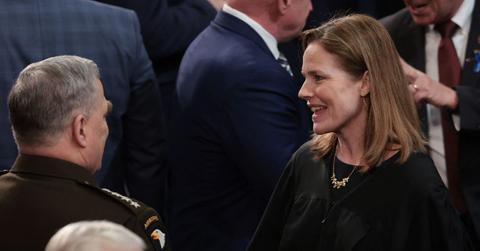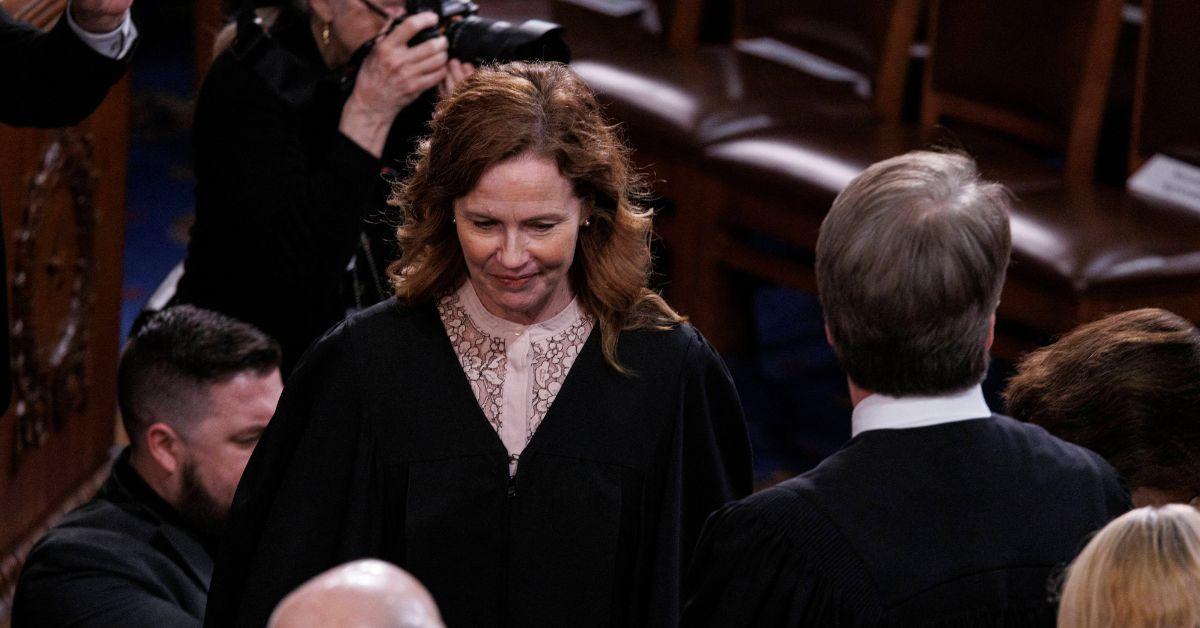Amy Coney Barrett Recused Herself From a Case Over Religious Charter Schools
She has recused herself because she didn't think she could rule impartially.
Published May 1 2025, 2:24 p.m. ET

Although there's a lot happening in U.S. politics at the moment, the Supreme Court is still deciding on a docket of cases. Among that docket this term is a case about whether the Catholic Church is allowed to establish the first religious charter schools in the United States. Separation of church and state has been a bedrock principle of the United States since its founding, so the case could have far-reaching implications.
Justice Amy Coney Barrett has recused herself from the case, though, meaning that a 4-4 deadlock is possible. Here's what we know about her decision to recuse, and why she might have done it.

Why did Amy Coney Barrett recuse herself from this case?
Barrett did not give a reason for her recusal, but reporting suggests that she is close friends with the Notre Dame Law School professor who helped the Catholic Church when they were building their case in Oklahoma. Barrett is also Catholic, but she is one of six Catholic justices, so it seems unlikely that she decided to recuse herself for that reason when so many of her colleagues are hearing the case.
While the ultimate outcome of the case is still undecided, it seems likely that the three liberal justices on the court will vote against allowing the Catholic Church to create their own system of charter schools. That means that only one conservative will have to flip for the court to be deadlocked, which would mean that the Oklahoma Supreme Court decision forbidding the creation of the schools would stand.
Amy Coney Barrett has a complicated relationship with the right.
Although she was initially hailed by the right when she was first confirmed, Barrett has since developed a more complicated relationship with the Conservatives that were once happy she had been placed on the Court.
In the years since her appointment, though, Barrett has proven that she is not always in line with her fellow conservative justices, and her willingness to sometimes sign on to more liberal opinions has made her the subject of scorn in some circles.
This recusal seems unlikely to help among those who think that Barrett is not quite as conservative as they might have believed her to be. What seems clear, though, is that Barrett is willing to recuse herself in cases when it might seem like she has a conflict of interest that prevents her from ruling fairly.
This is supposed to be standard practice at the Supreme Court, but like almost everything else inside of that institution, it's only enforced by the justices themselves. That means that Barrett's recusal was entirely her decision, and we don't always know when there might be a conflict of interest in a case until the justices announce their recusal.
Barrett's recusal could have a material outcome on this case, even as it also works to prove that she, at least, can identify conflicts of interest.